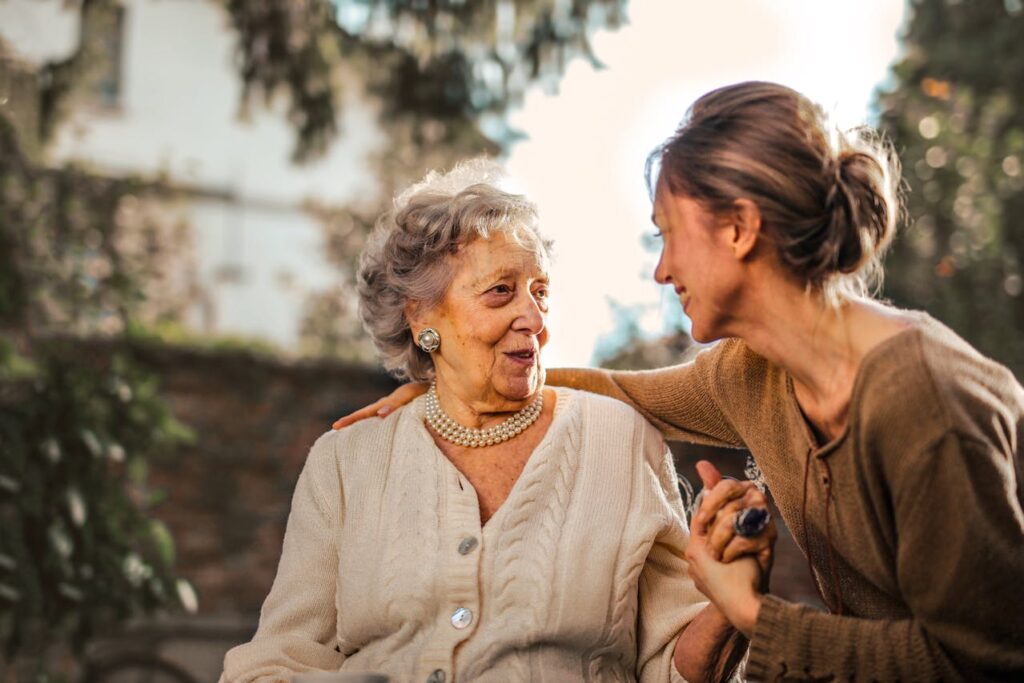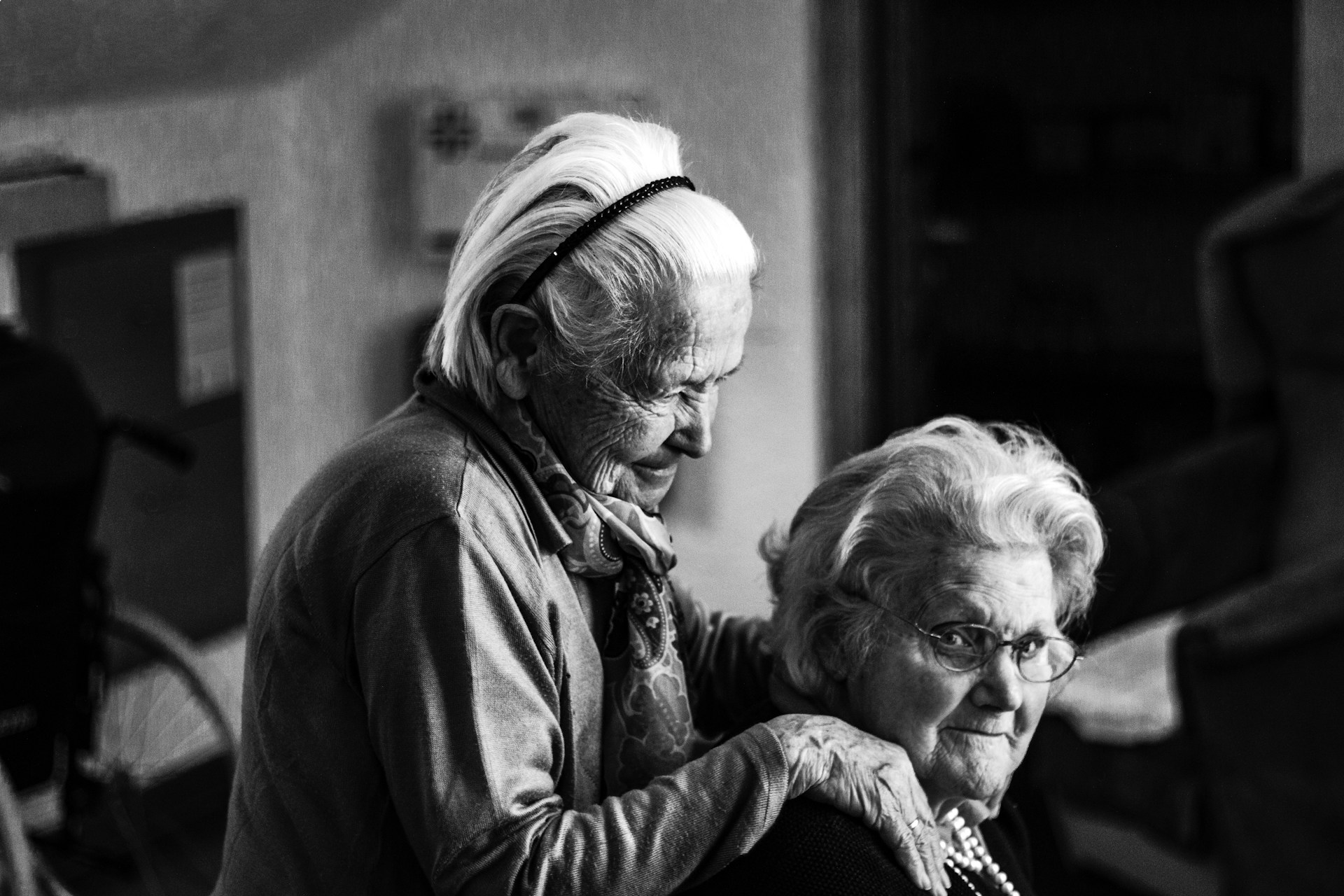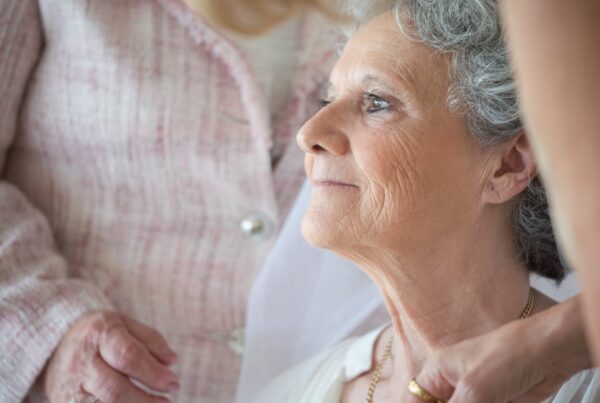Parkinson’s disease is a progressive neurodegenerative disorder that primarily affects motor functions. As the disease progresses, it can significantly impact the daily lives of those affected, making adequate care and support crucial for maintaining quality of life. At Alexander Ville Rehab Senior, we provide comprehensive care and rehabilitation for people with Parkinson’s disease, utilizing the latest therapeutic methods and a personalized approach.
Care for people with Parkinson’s disease Caring for people with Parkinson’s disease requires specialized support that includes physical, emotional, and medical care. Due to the progressive nature of the disease, symptoms such as fatigue, stiffness, and slowness of movement become more pronounced over time. Our professional team at Alexander Ville uses personalized care plans that are tailored to the individual needs of each patient.
The Connection Between Parkinson’s Disease, Dementia, and Alzheimer’s Disease One of the most common complications that occurs in people with Parkinson’s disease is the development of dementia. This form of dementia, known as Parkinson’s dementia, has specific characteristics that differentiate it from other types of dementia, such as Alzheimer’s disease.
Parkinson’s Dementia – Symptoms and Characteristics Dementia associated with Parkinson’s disease usually manifests through problems with attention, planning, organization, and decision-making. Unlike Alzheimer’s disease, where memory problems are often dominant in the early stages, Parkinson’s dementia first manifests through a decrease in the ability to concentrate and perform complex tasks. As the disease progresses, these symptoms can spread to other aspects of cognitive functioning, including memory, but often in a less pronounced way than in Alzheimer’s disease.
Differences between Parkinson’s dementia and Alzheimer’s disease Parkinson’s dementia: Initial symptoms – Problems with attention, planning, and executive functions. Progression – Symptoms of cognitive decline develop gradually, often accompanied by visual hallucinations and confusion. Memory – Memory problems are present, but are not the main symptom in the early stages. Motor symptoms – Always present due to the underlying Parkinson’s disease, including tremor, bradykinesia, and rigidity. Alzheimer’s disease: Initial symptoms – Short-term memory loss, difficulty recognizing familiar faces or objects. Progression – The disease encompasses increasing problems with memory, language difficulties, disorientation in time and space. Memory – Memory loss is the dominant symptom, often noticed first. Motor symptoms – Usually not present in the early stages, but may appear in the later stages of the disease.
Support and care at Alexander Ville Rehab Senior At Alexander Ville, our multidisciplinary team provides specialized care for patients with Parkinson’s disease and dementia. Our approach includes:
- Cognitive therapies – Programs that help preserve and improve cognitive functions, focusing on attention, planning, and memory.
- Physical therapies – A combination of physical exercises that help maintain mobility and reduce motor symptoms.
- Psychological support – Working with therapists to help patients and their families cope with the emotional challenges that dementia brings.
- Personalized care – Each patient has a customized care plan that takes into account the specific symptoms and stage of the disease, with the aim of improving the quality of life and maintaining the highest possible level of independence.

Photo: Elderly lady in a park / Pexels
The connection between Parkinson’s disease, dementia, and Alzheimer’s disease emphasizes the need for a comprehensive approach to care and rehabilitation. At Alexander Ville, patients have access to state-of-the-art therapies and support tailored to their specific needs. Our goal is to help patients maintain the highest possible level of functionality and enjoy a quality life, despite the challenges these diseases bring.
Symptoms of Parkinson’s Disease
Parkinson’s disease is a neurodegenerative disorder that manifests through a series of symptoms that become increasingly severe as the disease progresses. Symptoms can appear gradually and include both motor and non-motor aspects, significantly affecting the patient’s daily life. Key symptoms of Parkinson’s disease include:
Tremor
Tremor, or shaking, is one of the most recognizable symptoms of Parkinson’s disease. It most commonly occurs in the hands, legs, jaw, or head and is most pronounced at rest. In many patients, the tremor starts on one side of the body and can spread to the opposite side as the disease progresses. Shaking often worsens under stress or tension, and at rest it can become less noticeable. Although tremor is not present in all patients with Parkinson’s disease, it is often the first symptom to be noticed.
Bradykinesia
Bradykinesia, which means slowness of movement, is a key symptom of Parkinson’s disease and can significantly affect quality of life. Patients often notice that it takes them longer to perform simple tasks, such as dressing, writing, or even walking. Slowed movements can also make it difficult to initiate movement, which is called “freezing.” For example, a patient may stop in the middle of walking and have difficulty starting again. This symptom often causes frustration in patients because it slows down their ability to move and function normally.
Rigidity
Rigidity, or muscle stiffness, is another key symptom of Parkinson’s disease. Stiffness can affect any part of the body, but is most common in the hands, shoulders, and legs. This stiffness can be painful and limit range of motion, making daily activities difficult or impossible. Muscles become rigid, leading to a feeling of stiffness and discomfort. Rigidity can be particularly pronounced after periods of inactivity, such as sitting or sleeping, and often worsens as the disease progresses.
Postural instability
Postural instability, or problems with balance and coordination, is a symptom that usually appears in the later stages of Parkinson’s disease. Patients may become prone to falls because they lose the ability to maintain stability while walking or standing. This instability is the result of a combination of bradykinesia and rigidity, which makes it difficult to control body movements. Patients may show a tendency to lean forward or backward while walking, which further increases the risk of falls. As postural instability worsens, patients often require additional support, such as walkers or wheelchairs, to avoid serious falls and injuries.
These symptoms, along with numerous other possible signs such as depression, fatigue, and sleep disorders, make Parkinson’s disease extremely challenging for patients. Despite this, with proper treatment and support, many patients can maintain a high level of functionality and quality of life.

Photo: Elderly lady / Pexels
Stages of Parkinson’s Disease
First stage – Mild symptoms Parkinson’s disease in the first stage usually shows very mild symptoms, which manifest on one side of the body. The patient may notice a slight tremor in the hand or legs, subtle muscle stiffness, or minimal changes in posture and facial expression. These symptoms are often so mild that they do not interfere with daily activities and can be easily ignored or attributed to normal effects of aging. Patients in this stage usually do not experience a significant loss of functionality and can continue with their usual activities without major difficulties.
Second stage – Symptoms on both sides of the body. As the disease progresses to the second stage, symptoms become more pronounced and spread to both sides of the body. The patient may notice that tremors and stiffness become more pronounced, making it difficult to perform daily tasks. Although the symptoms in this stage are still bearable, patients begin to experience challenges in maintaining balance and fine motor skills. In this stage, patients are still capable of performing most activities independently, but it may take more time and effort to do so.
Third stage – Problems with balance. The third stage of Parkinson’s disease brings more serious problems with balance and walking. Patients may begin to notice occasional falls or insecurity while walking. The ability to perform movements becomes significantly impaired, and patients often need additional support, such as a cane or walker, to move safely. In this stage, symptoms begin to seriously affect the quality of life, limiting the patient’s ability to perform usual activities without assistance.
Fourth stage – Severe limitations in mobility In the fourth stage, symptoms become so pronounced that the patient is no longer able to function independently. Mobility is severely limited, and patients often need constant assistance with daily activities such as dressing, eating, and personal hygiene. Maintaining balance becomes almost impossible without help, and patients are often confined to a wheelchair or walker. This stage requires intensive care and support, as patients become dependent on caregivers or family for daily activities.
Fifth stage – Complete dependence on others The fifth stage of Parkinson’s disease represents the most severe form of the disease, where patients become completely dependent on others for all aspects of life. In this stage, patients are often bedridden or wheelchair-bound, with very limited or no ability to move independently. Mental functions can be severely impaired, and patients may experience symptoms of dementia. Due to severe symptoms and complications, such as problems with swallowing and breathing, constant medical care and attention are needed to ensure optimal quality of life.
Our goal is for every patient with Parkinson’s disease to achieve the maximum level of independence and quality of life. With the professional support of our team and the use of the most modern therapies and technologies, we strive to help each patient find a new sense of stability and security in their daily lives. With the right care, motivation, and dedication, we believe that recovery can be successful and that patients can continue to enjoy the activities they love.
Schedule a visit to our REHAB SENIOR center today and discover how we can help your loved one lead a fulfilling and happy life.





